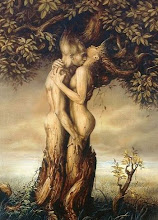Pagan religions, defined
Pagan religions are religions centered around nature-based worship. They emphasize spirituality, and feeling in place with the world. Many pagan teachings center around balance, the dual nature of the universe, nature's cycles, fertility in all aspects of life, and personal growth.
The origins of pagan religions
Most pagan religions that exist today are really neo-pagan. This means that they're derived from ancient beliefs, but are blended with modern morals, philosophies and culture. Wicca, the most widespread pagan religion, is a neo-pagan religion. Reconstructionists are a small subset of pagan religions which try to recreate ancient religions as accurately as possible.
How pagan religions relate to other religions
Today's pagan religions are distant cousins of the Judeo-Christian religions. This means that they share cultural and theological ancestry, but do not have any direct ties to one another. Pagans, generally speaking, do not believe in Judeo-Christian theological constructs such as God, Satan, Angels, Devils, etc. Many forms of paganism are not exclusive. This means it is possible to blend paganism with many other religions, so long as they too are not exclusive.
Paganism and witchcraft
Witchcraft, or the use of magick, is much like prayer for Christians. It is a way in which the individual can connect with the divine, and feel empowered. Not every pagan practices witchcraft, and not everyone who practices the craft is pagan.

No comments:
Post a Comment